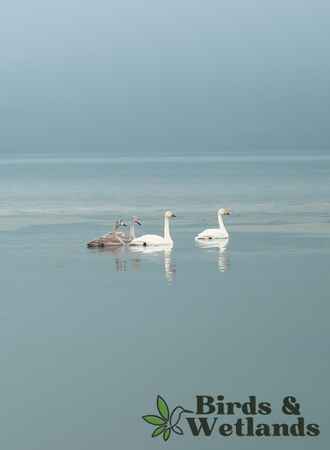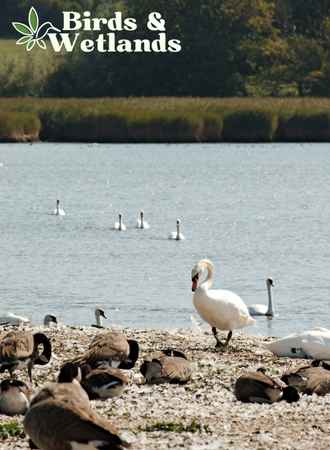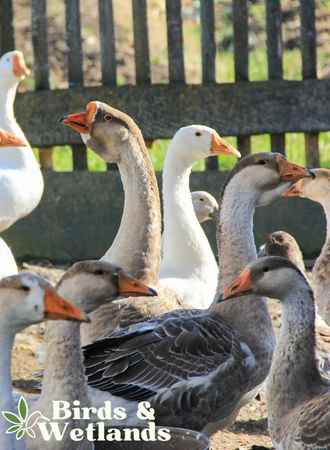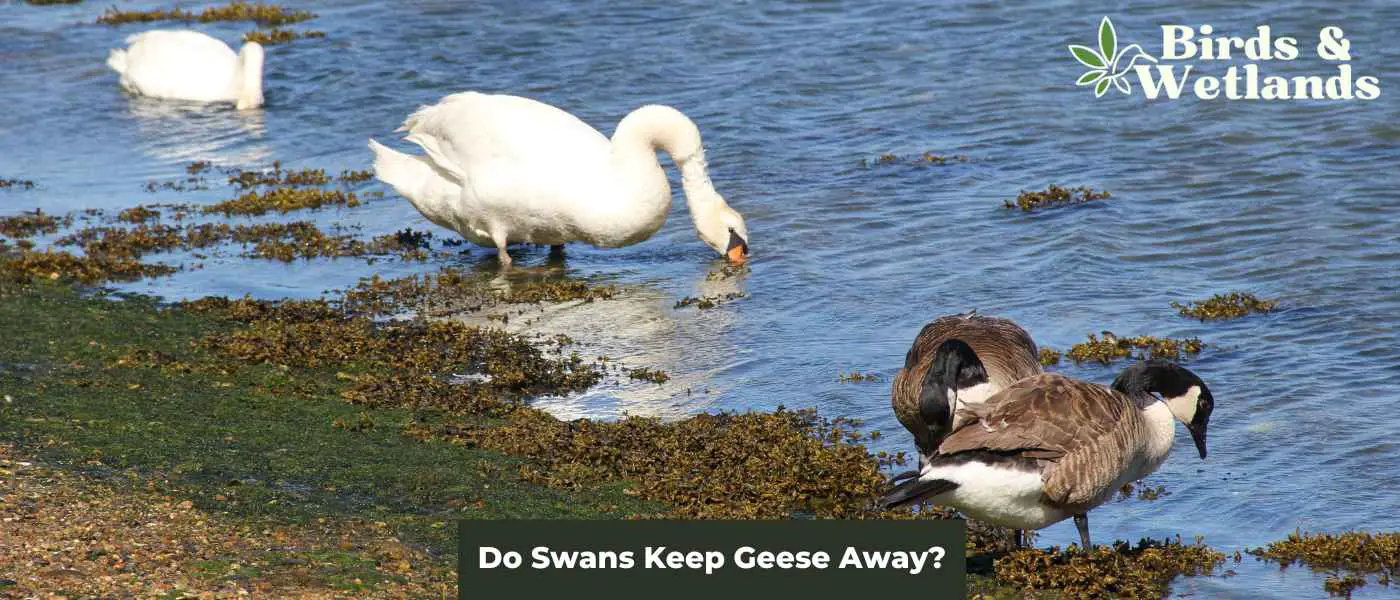Geese are known for their beauty and grace, but they can also be a nuisance to property owners and managers. Their droppings can create unsanitary conditions, and their aggressive behavior can make them a danger to people and pets.
Additionally, geese can damage lawns, grass and gardens by grazing and eating on land vegetation. For these reasons, many property owners and managers seek ways to prevent geese from nesting on or near their properties.
One effective method for deterring geese is using swans. Swans have strong territorial behavior and are known to be aggressive towards other waterfowl, including geese, which can help keep geese away from the area where swans are present.
Property owners and managers may use swans as a deterrent because they believe that the presence of swans will cause geese to avoid the area rather than because swans will actively attack or harm geese. This method is effective and humane compared to spraying repellents, as it does not harm the geese in any way.
Key Takeaways on Using Mute Swans to Deter Canada Geese
- Swans are the perfect addition to a backyard setting if you want to save money and to increase effectiveness of getting geese off your water garden.
- Swan decoys may be used as a method to deter geese from an area, but their effectiveness can vary depending on the specific situation.
- White swans may keep Canada geese away in certain situations, particularly if the swans are territorial and aggressive.
Will swans chase geese away?
Swans and geese are both waterfowl and can be found in many of the same habitats, such as ponds, lakes, and rivers. However, swans are generally larger and more aggressive than geese and may chase them away if they feel threatened or want to defend their territory.
For example, a pair of mute swans aggressively protect their young and territory against other birds and humans. They can become aggressive if their eggs or cygnets are threatened. They will chase away other birds, such as geese or ducks, using their large size and powerful wings to intimidate them.
However, it’s worth noting that not all swans are the same, and not all will be territorial or aggressive. It also depends on the specific situation, such as the size of the pond or lake and food availability. In some cases, swans and geese may be able to coexist peacefully.

Do swan decoys keep the geese away?
A swan decoy is a plastic decoy designed to resemble a real white swan, may be used to deter geese from an area. It is economical and without all the costs of getting rid of invasive animals.
The idea behind this is that the decoys will make birds believe that an angry white swan already occupies the nesting area, and they will be less likely to enter or stay in the place.
However, it’s worth noting that the effectiveness of a white swan decoy or a hand-painted floating swan as a method to solve a goose problem can vary depending on the specific situation.
For example, if the geese are accustomed to the presence of decoys, they may not be deterred by them. Additionally, if the geese are seeking food or other resources in the area, they may be less likely to be deterred by a decoy.
It’s also important to note that using decoys alone may not be sufficient to keep geese away. This overall repellent strategy are most effective when used in conjunction with other deterrent methods such as using a coyote decoy or free-floated decoys or those secured with decoy weights.
Additionally, the decoy or fake swan made of lightweight polymer or a quickly figure with a realistic look using a non-fading paint should be moved periodically to be an effective deterrent and scare away most intruders. Don’t put it in the same location twice.

Do swans dislike geese?
Swans and geese do not have any specific dislike towards each other. They will likely coexist peacefully in the same environment, such as on a lake or river. However, they may compete for resources such as food and nesting sites.
It’s also worth noting that some species of swans and geese have different migratory patterns, so they may not even encounter each other in the wild.
In captive settings, such as a zoo or park, it is common to see swans and geese coexisting without issue.

Why are geese afraid of the white swan?
Geese are not inherently afraid of white swans. These waterfowl may coexist peacefully in the same environment. However, geese may avoid or flee from a swan if the swan becomes aggressive toward them.
Swans are known to be territorial animals and may become aggressive when defending their nests or territories, especially in the nesting season. They are also known to be very protective of their young. If a goose or any other bird gets too close to a swan’s nest or territory, the swan may chase it away or attack it.
Additionally, swans are generally larger waterfowl than geese and have a more powerful beak that can be used as a weapon. This might make geese more cautious around swans.
It’s also worth noting that their specific circumstances and the environment highly influence the behavior of any wild animal. The way a swan or a goose behaves can vary depending on its age, sex, reproductive status, and physical condition, as well as the availability of food and the presence of other animals.
In some cases when real swans aren’t effective, property managers use border collies and other dogs to chase waterfowl away.

